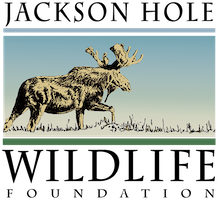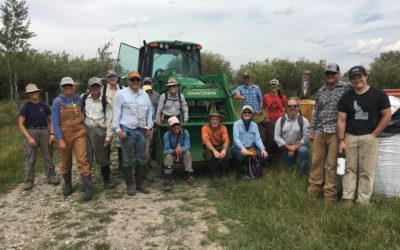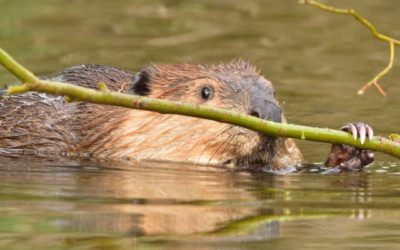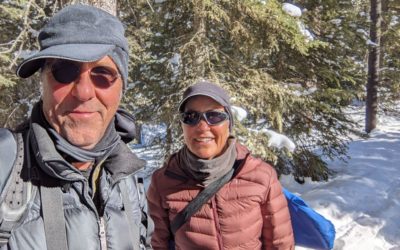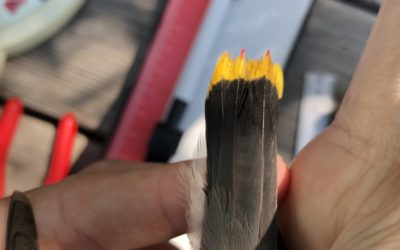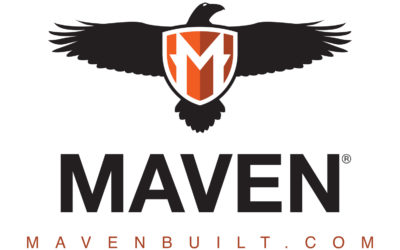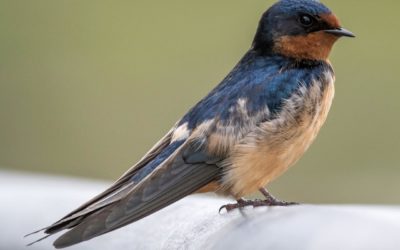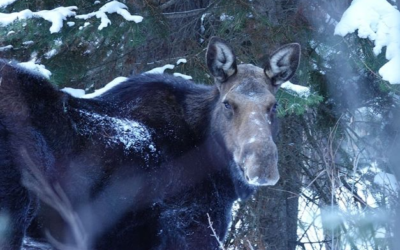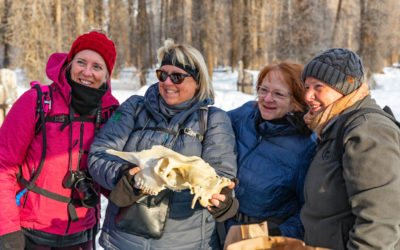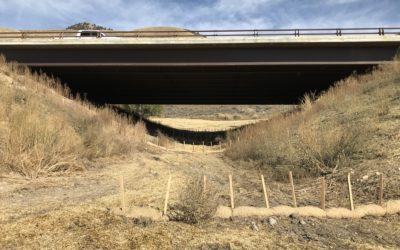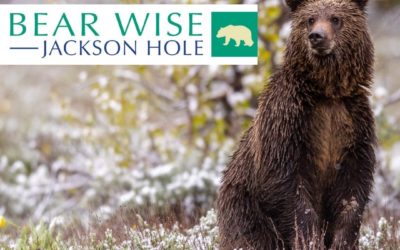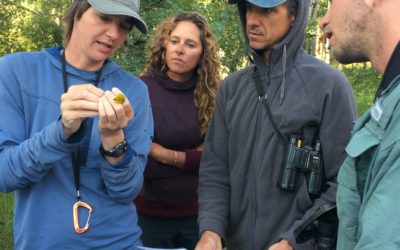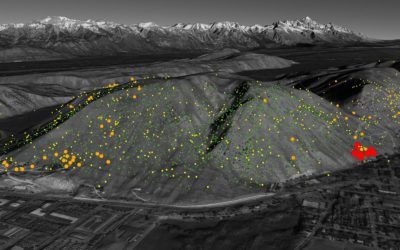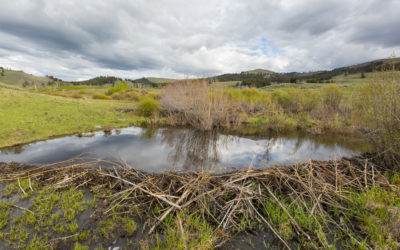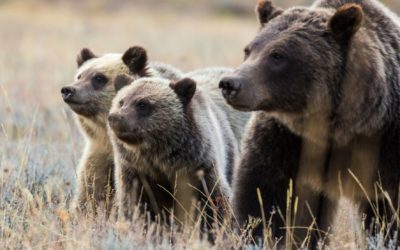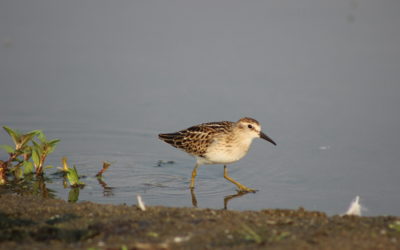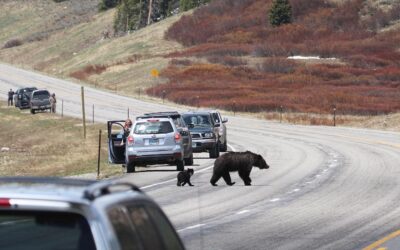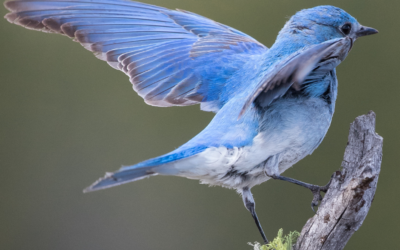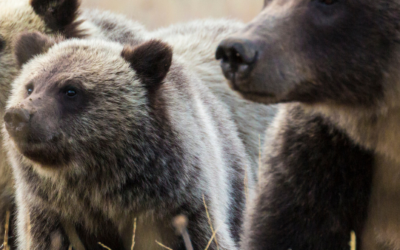
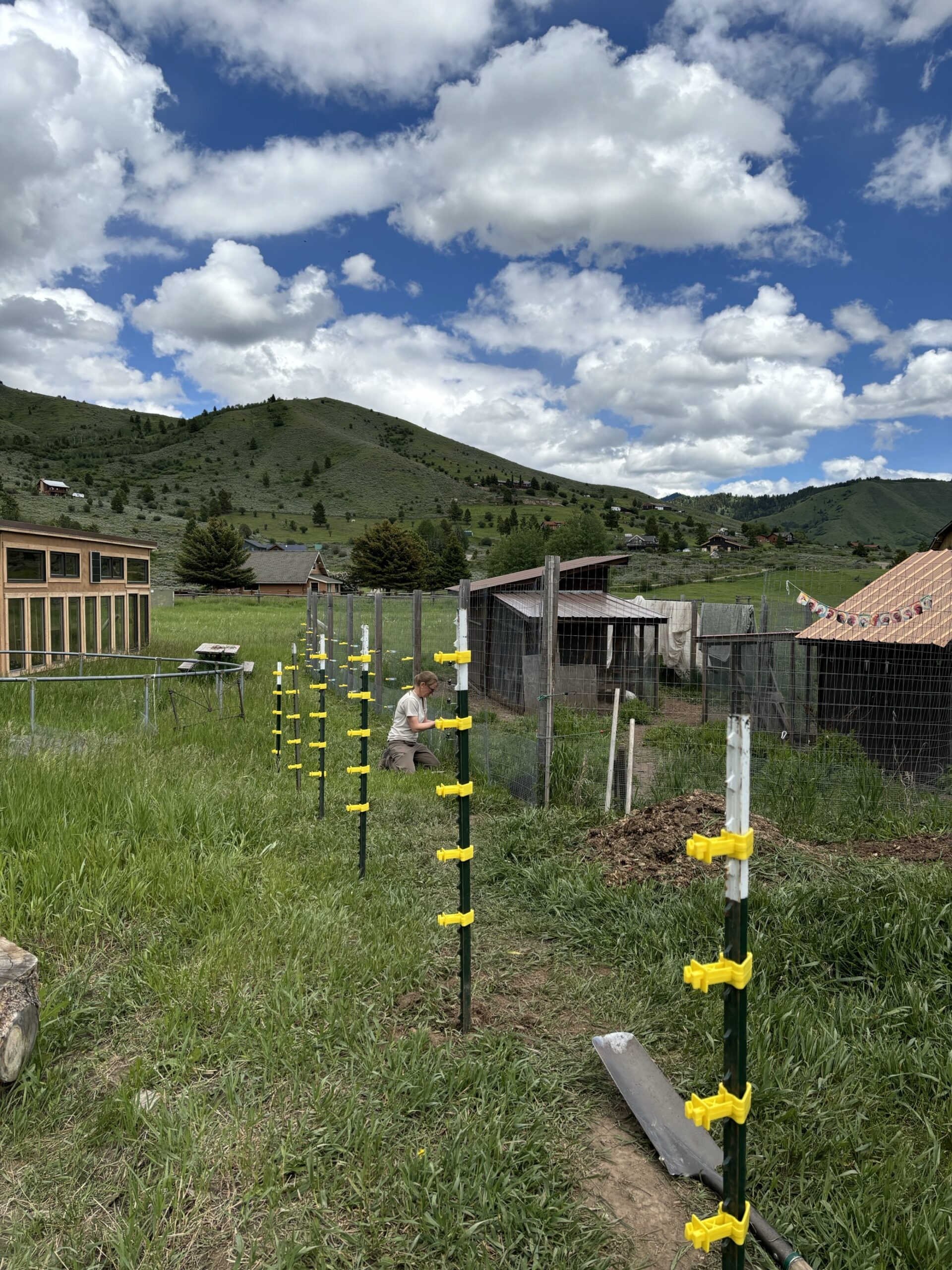
Dealing with Bears in Your Own Backyard
At the Jackson Hole Wildlife Foundation, we strive to create a safe environment for both residents and wildlife. One of our critical initiatives, as part of our Bear Wise Jackson Hole partnership, is promoting and helping to install bear-resistant fencing. This measure is vital for protecting both your property and the bears that roam our beautiful region.
Bear-resistant fencing is not just a protective barrier; it’s a lifeline for bears and humans alike. These fences prevent bears from accessing gardens, chicken coops, honeybee boxes, and livestock. When bears are drawn to these attractants, they pose a threat to property and human safety. Unfortunately, bears that become accustomed to human food sources often have to be relocated or, in some cases, euthanized. By installing bear-resistant electric fences, we can help ensure that bears stay wild and safe, allowing us to coexist harmoniously.
Preventing bear conflict at your home involves reducing access to attractants. This includes properly securing garbage, pet food, and any other potential food sources. Bear-resistant fencing is a crucial part of this effort, as it keeps bears away from areas where they might find food, thus reducing the likelihood of dangerous encounters.
Bear Safety Tips: Backcountry Encounters
When enjoying the outdoors and backcountry, it’s essential to follow specific safety guidelines to prevent bear conflicts. Seeing a bear in the wild is a remarkable experience, but it’s crucial to remember that bears are powerful and potentially dangerous animals. Here are some essential safety tips to keep in mind while enjoying the natural beauty of Jackson Hole:
Stay in Your Vehicle
If you encounter a bear while driving, please remain in your vehicle. Either pull over at a designated pullout or keep moving to avoid blocking traffic and causing stress to the bear.
Give Bears Space
Whether you’re in your car or on foot, always maintain a distance of at least 100 meters from bears. This distance ensures that bears don’t feel threatened or stressed by your presence.
Never Feed a Bear
Feeding bears can lead to them becoming habituated to humans, which often results in dangerous conflicts. A bear that becomes accustomed to human food sources is at a much higher risk of being euthanized. Always secure your food and never leave it unattended.
Carry Bear Spray and Make Noise
When you’re outside your vehicle, always carry bear spray and know how to use it. Making noise by clapping or shouting can alert bears to your presence, preventing surprise encounters.
Be Bear Wise: Get Involved and Stay Informed
JHWF’s Blogs
Won’t You Join us in Celebration?
By the JHWF Staff As wildlife conservation professionals, we remind ourselves to celebrate the successes. Sometimes we get so wrapped into understanding and mitigating the challenges facing wildlife that we feel frustrated. In these moments, it is sometimes in our...
Beaver Project
By Jeff Burrell and Hilary Turner Jackson Hole Wildlife Foundation is excited to announce a new partnership with beaver researcher and hydrologist Jeff Burrell and a new project for interested Nature Mappers – Beaver Project! In Beaver Project, Nature Mappers will...
A Weekend on the Wind River Indian Reservation
By Charlie Brandin The great debate - bison or buffalo? I spent last weekend at the Wind River Indian Reservation learning how western science (which classifies the animal as bison) and indigenous knowledge (which classifies it as buffalo) come together for an...
Nature Mapper Profile: Meet Kathy O’Neil and John Norton!
By Hilary Turner As Nature Mapping Jackson Hole nears its landmark 1000th certified Nature Mapper, I thought it would be fun to write an article featuring a couple of newer Nature Mappers who were just trained in the last year. Many of you have participated in Nature...
Meet our Summer Bird-Banders
This year, Vicki Morgan and Kevin Perozeni will head up our MAPS bird-banding stations at Boyle's Hill and the Kelly Campus of the Teton Science Schools. Vicki will be returning for her third summer in a row, while Kevin will be joining us for the first time! Vicki...
Nature Mapping Summer Challenge with Maven® Binocular Giveaway
Jackson Hole Wildlife Foundation is proud to partner with Maven® Outdoor Equipment Company in a Nature Mapping Summer Challenge! Maven® has graciously donated a pair of C.1 10x42 binoculars (MSRP $425) to the JHWF to be given away to a Nature Mapper who completes the...
Spring Emergents and Arrivals: First of Year (FOY)
Nature Mapping Enews – April 4, 2022 – Written by Frances Clark “I saw my first robin!” “I saw bluebirds!” “Did you hear the sandhill cranes the other day?” “No, but I heard meadowlarks up in Antelope Flats.” “The bears are out.” “Have you seen an...
Moose Day 2022
By Frances Clark A valiant cadre of over 95 volunteers ventured out on a frigid morning to scout for moose with great accomplishment. The latest count, still to be verified, is 94 moose. This compares well with Moose Day 2021 when 109 volunteers recorded 106 moose....
Thanks for a Great Hosted Moose Day!
We'd like to extend a special thank you to all the new participants and visitors who joined us at Rendezvous Park in sub-zero temperatures on the morning of February, 26th for Hosted Moose Day. While only one of our hiking groups spotted a moose, it's important to...
Where does the chicken cross the road? Thoughts on the things we wouldn’t know without your help
By Dr. Hannah Specht, University of Montana Citizen scientists, the world round, invest in data collection on the understanding that this effort will contribute to expanding knowledge and the hope that it will move us forward. The timeline for knowledge expansion, and...
JHWF Receives Bear Wise Jackson Grant
Did you know that Teton County experiences an average of 71 human-bear conflicts per year? Sadly, in 2021 alone, six grizzly bears were euthanized because of human food-conditioning. Now more than ever, we believe bears need our...
Grand Teton National Park’s Bird Program: a Collaborative Approach to Preservation
By John Stephenson, Grand Teton National Park wildlife biologist While people flock to Grand Teton National Park for its spectacular wildlife often hoping for a glimpse of an elusive wolf or grizzly, most visitors are all but guaranteed sightings of remarkable bird...
Why Should I Care About Winter Range?
By Morgan Graham, Teton Conservation District Growing up in Pennsylvania, I was not intimately familiar with the concept of winter range. Seasonal shifts were marked by hundreds of Canada geese gorging on leftover corn and soybeans. Over time more and more of those...
Beavers: We need them but they need our help
By Jeff Burrell - Hydrologist and former director of the Wildlife Conservation Society Northern Rockies Program. Cover Photo from Neil Herbert (Yellowstone National Park) There’s been a growing appreciation of the important role beavers can play in creating and...
Protect our Bears by Keeping Them Wild
Holy cow. I am impressed at the boldness of bear 399. She is a survivor and is imparting this skill and resourcefulness on her four cubs. How did we get from the near extirpation of grizzly bears to bears walking through Jackson? The incredible foresight of the...
Meet the Neighbors to Nature Volunteers
By Hilary A. Turner, JHWF Neighbors to Nature (N2N) is a community science project supported by the Jackson Hole Wildlife Foundation (JHWF) and our partners – The Nature Conservancy of Wyoming (TNC), Friends of Pathways (FOP), and the Bridger-Teton National Forest...
August is for the Shorebirds
Hilary Turner | Nature Mapping Program Coordinator Fall migration is a fun time for birders and it is the only time of year we Wyomingites get to examine many members of one of my favorite groups – the shorebirds. These members of the order Charadriiformes can be...
Help Keep Bears Wild and People Safe on Togwotee Pass
For Immediate Release April 25, 2025 Agencies Call Upon the Public to Help Keep Bears Wild and People Safe on Togwotee Pass Follow Ethical Wildlife Viewing and Photography Practices and Direction of Officials MORAN, WY — —In recent weeks, significant bear jams and...
The Mountain Bluebird: A Welcome Sign of Spring
There are few sights in the Greater Yellowstone Ecosystem more uplifting than the flash of brilliant blue wings cutting across a wide-open field. That’s the male Mountain Bluebird (Sialia currucoides)—a vibrant burst of color against the earthy hues of Wyoming’s...
2025 Bear Season is Here – A Message from Bear Wise Jackson Hole
For Immediate Release March 26, 2025 The 2025 bear season is here We need your continued help to avoid human-bear conflicts JACKSON, WY — Bears across Teton County are becoming active with the spring transition. Adult male grizzly bears begin emerging from their...
